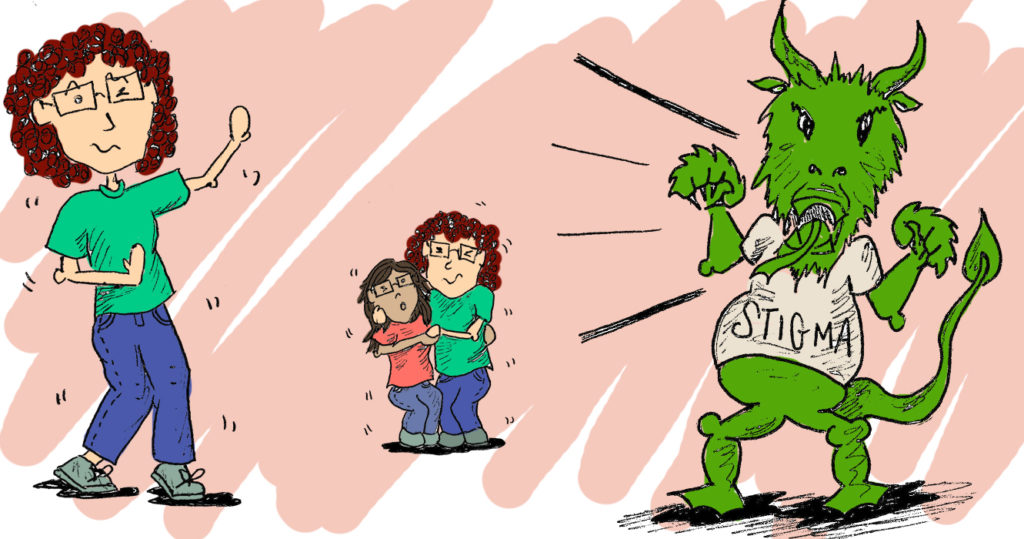In this closing post for Mental Health Awareness Month, Kristen reflects on what she’s learned during a month of posts by people she knows. And in that time, she discovers that having mental illness isn’t always a bad thing.

Hatching an idea
Sometime in March, when we started planning for Mental Health Awareness Month, Sue had this idea to tell a story with our posts – just one story of one person experiencing mental illness. In true Committed fashion, we began brainstorming what this might look like, and so it grew. What if we told this person’s story through the voices of the people around them instead? So many of our posts for Committed are first person experiences of mental illness. What if we showed what it was like having mental illness from the perspective of someone who knows or even loves someone else with it?
The idea comes to life
And so my mind immediately started churning. Who would I ask if we were going to my story for this? And I came up with a number of people that could provide something. Maybe they could do a blog post, a podcast or a video. These could shed light on what it was like to know someone with mental illness – to know me. At that time, I was purely in idea-generating mode, so I got excited – this could be really cool. It could also be a great way to show that even if mental illness doesn’t affect someone directly, it can still have an impact. I immediately shot off an email to about fifteen different people to see who would bite, and then went on about my business, considering that part of my work done for the month.
“What have I done?”
Then the first blog post came back. Before I even opened it, I thought to myself, “What have I done? I don’t want to know what people think of me and my depression and anxiety! This was a horrible idea. This was a terrible, horrible, no-good, very bad idea.” I waited almost an entire day before opening the document to read it. And then, once I did, I started breathing again. This was, well, it was frankly one of the most accurate descriptions of me that I could have hoped for. Then again, this was my best friend – it would make sense that she would be so on the mark while still being supportive. What would happen when my boss sent me hers? Or I talked to my son?
Having mental illness…can be good?
And then another post came in, and another. Soon I realized what they all had in common – besides me and mental illness, of course. These posts were less about me, and more about how knowing someone with mental illness – and more importantly in some cases, someone who was open about their mental illness – had changed their lives. And they had all been changed in some way – for the better. Some found it was easier to be open about their own illnesses. Some used what they learned to help the people they work with and supervise. And some were just more aware about the challenges of others. But all of them gained from me sharing my experiences.
Now what?
Now that Mental Health Awareness Month is over, what do we do? How do we take what we’ve learned and apply it? We are educators, after all. Well, here’s a few ideas:
- Print off The Committed Project Toolkit and use with your co-workers or staff
- Try doing the Spoon Theory activity yourself or with others to gain a better understanding of how it feels to have mental illness (password: GiveMeTheSpoons)
- Use one of the posts from The Committed Project blog to start a conversation – the more we talk about it, the less the stigma can hurt us
- Continue to read about mental illness and talk about it – all year long. It doesn’t go away for those of us who have it, and we can’t contain our experiences to one month.
We hope you’ll continue to check out The Committed Project for more great stories, resources and information about mental illness in higher education professionals. Mental illness affects us all the time – we need to keep discussing it.
